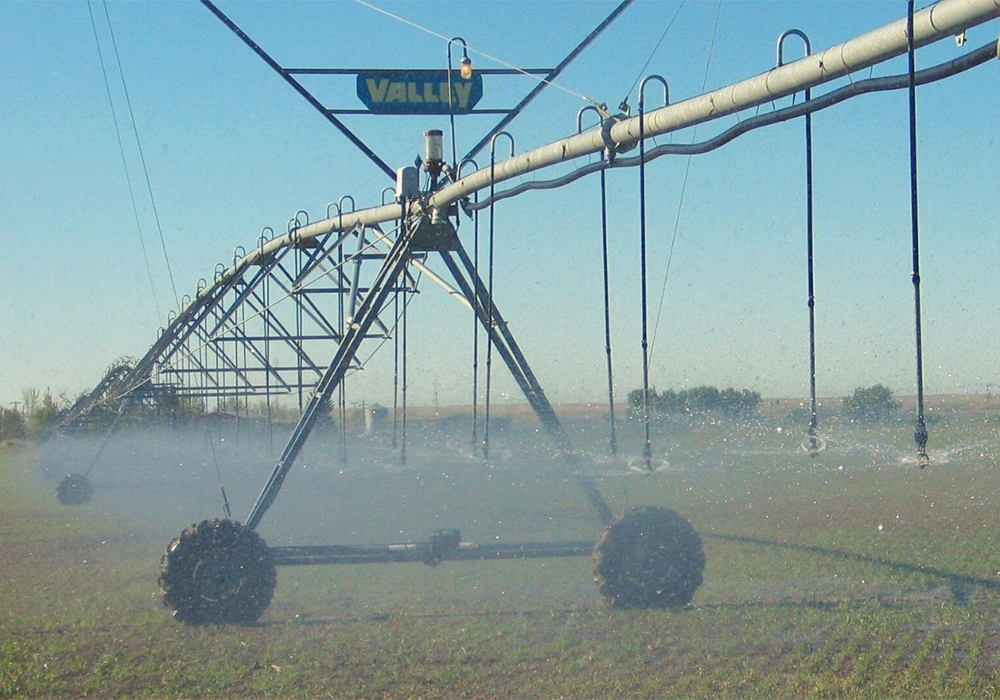Irrigated crops in Alberta are doing better than their dryland counterparts but challenges exist.
Sugar beets, potatoes and corn crops have been fully seeded across the southern portion of the province for several weeks and they need hotter weather to spur growth.
Cory VandenElzen, Alberta Sugar Beet Growers vice-president, said about 500 sugar beet acres required re-seeding due to dry and windy conditions but that’s about average in any year.
“The stands are good to very good in places. It’s been a little bit cool and we’re maybe a little behind last year,” he said.
Read Also

Why feds imposed EV tariffs
Moe and Kinew have a fight on their hands when it comes to eliminating the EV tariff. Canada has to worry about pissing off the U.S. and Mexico and hundreds of thousands of auto workers.
Heat in late June and into July will determine how good the crop will be, added VandenElzen.
“Like a lot of irrigated specialty crops, a hot, dry summer would be better for us just because we can control the amount of water that goes on. The heat is the biggest thing,” he said. “At this point now, I think lots of rain isn’t going to do too much damage to beets anymore.”
The dry weather saw some irrigation districts turn on the taps early to provide much-needed moisture.
“It was so dry this spring, through last fall and winter in general,” said VandenElzen.
When it comes to potatoes, it’s a little bit different, according to Terence Hochstein, executive director of the Potato Growers of Alberta.
The dry, cool spring caused a late start to potato seeding.
“We need some more rain,” he said. “Yes, we have irrigation here in southern Alberta, which is great, but we still need some more rain. An inch of rain is better than three inches of irrigation.”
Crop stands have emerged in the southern region but it’ll be up to the weather in the next few weeks to determine how well potatoes do this year — a year in which Western Canada’s other major producer, Manitoba, is struggling with too much moisture.
As with sugar beets, warmer temperatures are a must but not the constant 35 C-plus days that scorched the Prairies last summer, said Hochstein.
He said temperatures of about 27 C that cool in the evenings are ideal for potatoes.
Both VandenElzen and Hochstein said current input prices will make this year’s crop one of the most expensive to seed ever.
“We use the same inputs as every other crop so absolutely no different,” said Hochstein.
Overall, despite early June rainfall across southern Alberta, subsoil moisture levels are exhausted, according to the latest Alberta Crop Report.
That report says 91 percent of subsurface soil moisture levels below 15 centimetres is rated between poor and fair.
















